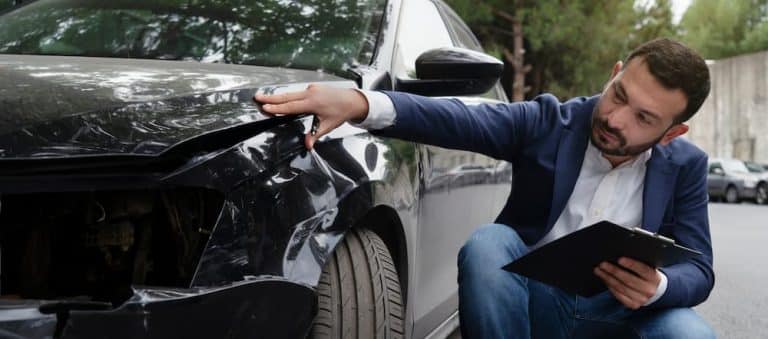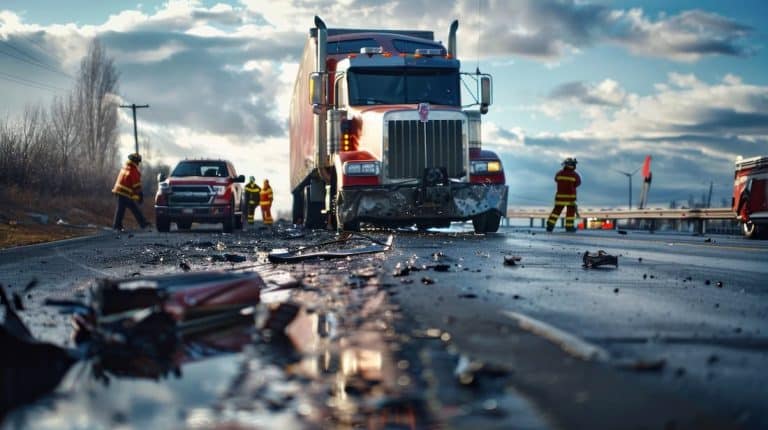A semi-truck accident can be life-altering in more ways than one. In many cases, accident victims are left with injuries that require years of costly treatment. Plus, these crashes are often legally complex, making it challenging for injured people to obtain the compensation they need to finance their recovery.
Don’t lose hope, though. With quality representation from a Colorado trucking law expert, you can successfully navigate a truck accident injury case.
What Are the Trucking Laws in Colorado?
Trucking industry laws and standard auto accident laws differ widely, making truck accident injury cases unique. Here are some key laws governing the Colorado trucking industry:
Two-Year Statute of Limitations
Colorado’s statute of limitations for personal injury claims is two years from the crash date. This means you have up to two years to file a claim. We recommend filing early to minimize your chance of missing this deadline.
Minimum Insurance Requirements
Trucking companies operating in Colorado must possess minimum liability insurance coverage of five million dollars for injuries and property damage. If their policy falls short, they may have to pay for your damages out of pocket.
Comparative Fault Rule
All vehicular accidents in Colorado follow a comparative fault rule. It dictates that if you’re partially at fault for the accident, your damages will be reduced by the percentage of fault you own. For example, if a court determines you were 20% responsible for a crash, your damages will be reduced by 20%. However, if evidence proves you were more than 50% responsible, you may be unable to recover any damages.
FMCSA Regulations
In addition to Colorado’s state laws, semi-trucks must follow certain federal guidelines set by the Federal Motor Carrier Safety Administration (FMCSA). These guidelines cover:
- Driver service hours
- Vehicle maintenance requirements
- Driver licensing requirements
If a driver or carrier fails to adhere to the regulations laid out by the FMCSA, they may be liable for any resulting accident.
Each of these laws adds extra complexity to truck accidents, making it critical to find a qualified attorney to handle your case.

How Colorado Trucking Laws Impact What You Do After an Accident
After being injured in a truck crash, you’ll need to file a personal injury claim in accordance with Colorado trucking laws. The process is inherently complicated, but if you stick to the steps below and work with a qualified attorney, you can earn the compensation you deserve:
- Provide a statement to the responding officer: Once a police officer arrives on the scene, give them a statement detailing the crash’s specifics. Leaving the scene of a crash can be seen as an admission of fault.
- Get all necessary medical care and retain any medical documents: Get professional medical care at a doctor’s office or hospital right away. Doing so will create a record of your injuries and treatment. Courts use these records to determine fair compensation for the crash.
- Speak to your insurance company: Most insurance companies require you to notify them immediately after an accident. Tell your insurance provider you were involved in a crash to avoid breaching your coverage terms.
- Schedule a consultation with a truck accident attorney: Call a personal injury attorney who specializes in truck accidents. You will need their help to navigate Colorado trucking laws during your case.
- Submit all information to your lawyer: Once you have consulted with and retained an attorney, they’ll request certain information from you, like treatment records and photos of the scene. Do your best to submit all requested documentation.
- Wait for your lawyer to build the case: After you’ve submitted your documents to the attorney, most of your work is done. Now, it’s time to wait for your lawyer to build the best case they can. While creating the case, they may ask for additional information from you. If they do, respond to their information requests as quickly as possible.
- Respond to your lawyer’s requests during negotiation: Attorneys typically try to settle cases outside of court. While negotiating with the trucking company, your lawyer may request information about the crash. If they do, provide it as quickly as possible.
- Attend court (if needed): If negotiations fail, your attorney may decide it’s best to take the case to trial. Closely adhere to your lawyer’s directions during court proceedings.
Following these steps ensures you’ll receive the help you need from a qualified attorney and increases your chances of earning compensation for your accident.
Get the Compensation You Deserve with Help from a Colorado Truck Accident Attorney
If you or someone you love has been seriously injured in a semi-truck accident, don’t try to navigate the legal process alone. Instead, turn to the experienced Colorado truck accident attorneys at McDivitt Law! Our team has been helping people like you obtain the compensation they need to recover and move on with their lives after a severe crash. We have offices in Pueblo, Colorado Springs, and Denver.
Click the button below to schedule a FREE consultation with McDivitt Law.


